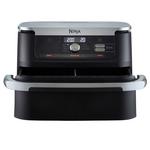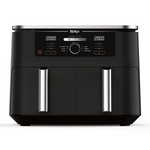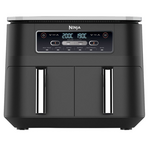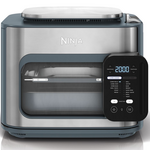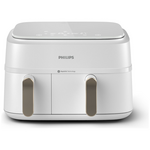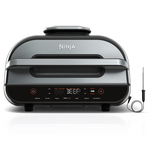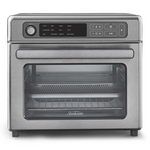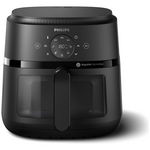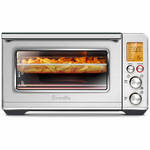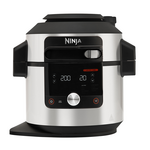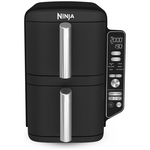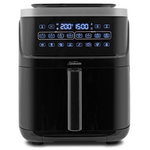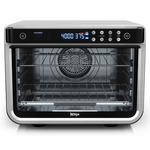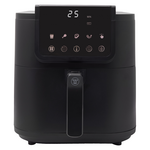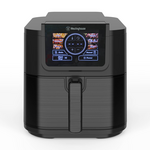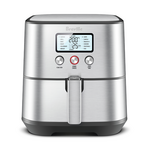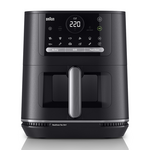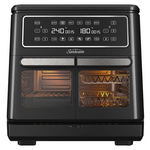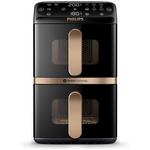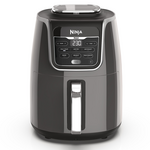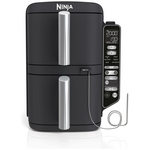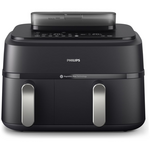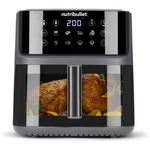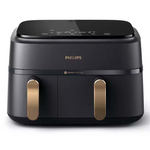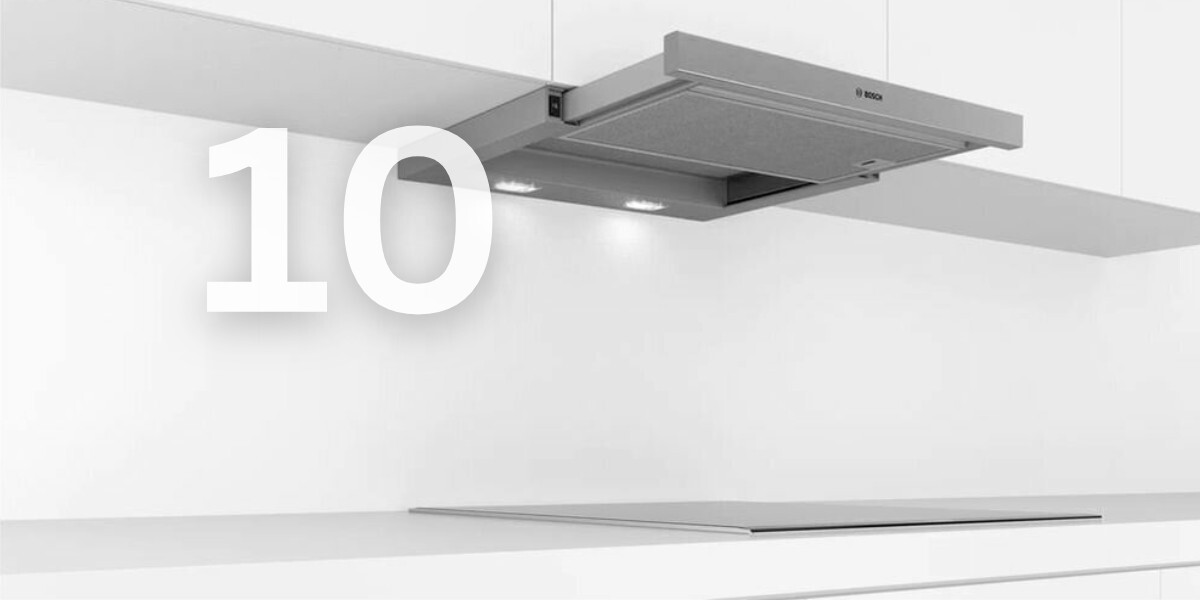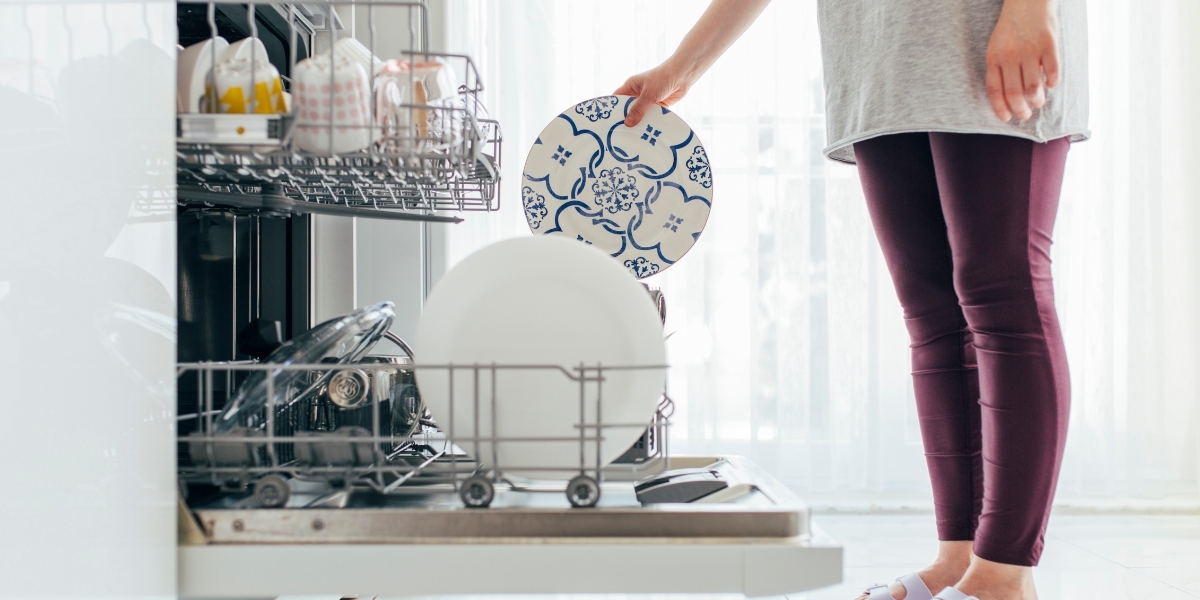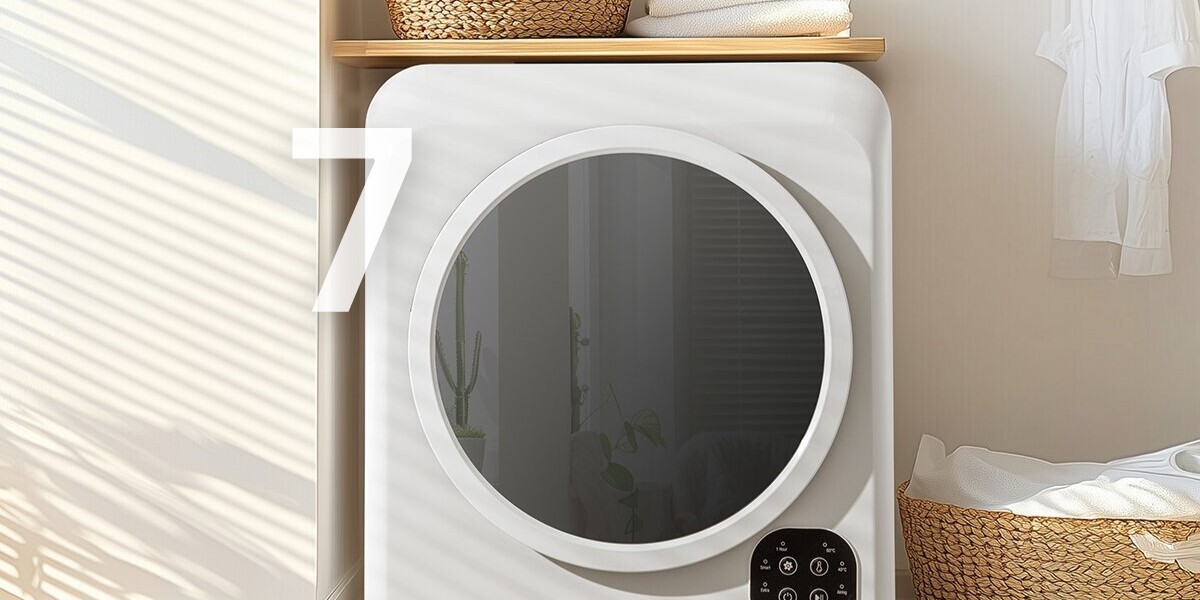
Your Cart
Your shopping cart is currently empty.
Kitchen
All things cooking, cleaning, chilling and more for the hard-working heart of your home.
KITCHEN | 10 FEBRUARY, 2025
6 MIN READ
Is it cheaper to use an air fryer or a regular oven?
Energy demand, speed and portion sizes.
We’re all looking for ways to make a dent in the cost of living, and energy bills are one area where savings can be made.
While heating and cooling generally make up the lion’s share of your energy costs, your habits in the kitchen can also have an impact. Ovens, naturally, are one of the kitchen appliances that contribute to this energy use.
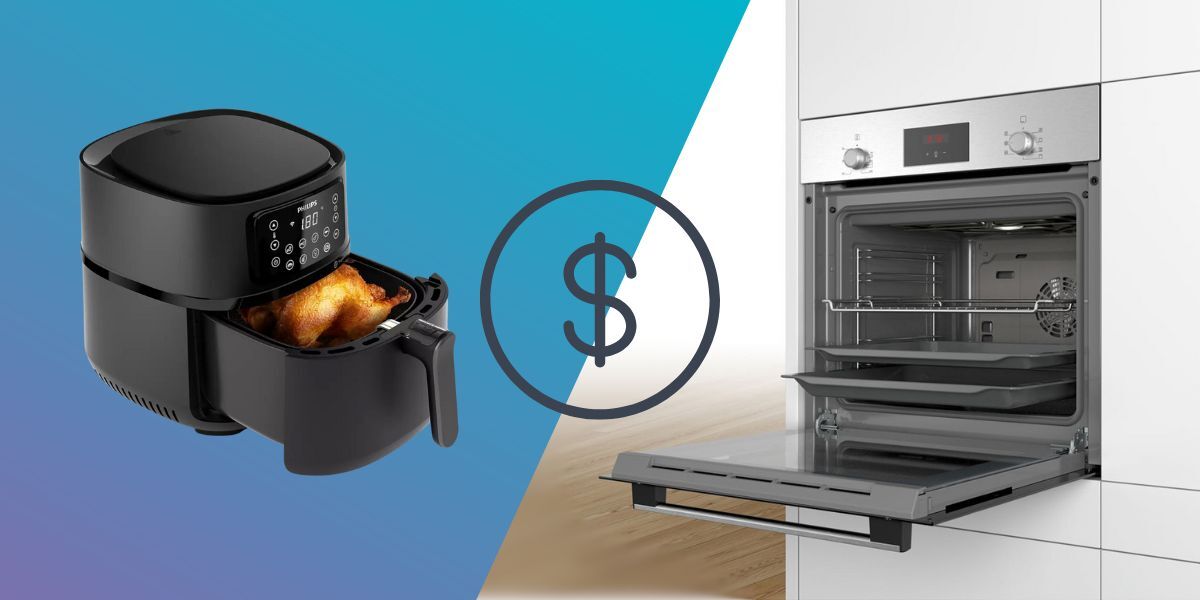
Air fryers have grown in popularity over the past decade, becoming a staple in millions of Aussie homes. While, for a lot of people, air fryers are primarily used because they can recreate their favourite fried foods using a lot less oil than traditional deep frying, they can also be cheaper to use than regular full-sized ovens - but not always.
Here’s how the combination of energy demands and cooking speeds affects the running costs of air fryers and ovens.
Air Fryers: Cheaper, convenient cooking
Ninja Foodi Air Fryer Max AF160
Yet to be reviewed
NutriBullet 8L CrispLite Vision Air Fryer NBA07350
Yet to be reviewed
How air fryers and regular ovens work
The main difference between air fryers and traditional ovens - and the thing that affects their running costs - is the targeted cooking area: air fryers focus heat directly on the food, while ovens spread it across a larger cavity. Put simply: it costs less to heat a small area than a big one.
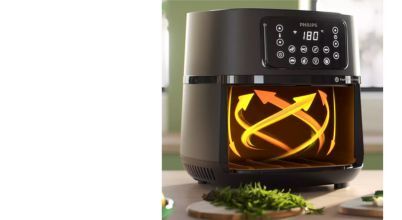
An air fryer is essentially a small convection oven. It uses a powerful heating element and a fan to circulate hot air around the air fryer basket, cooking food quickly and evenly.
While traditional ovens work in much the same way as air fryers, using heating elements assisted by fans for air circulation, they have considerably larger spaces to heat. In Australia, the electric single ovens (60cm width) that are standard in most homes have capacities of around 70–80 litres compared to 4-10 litres for air fryers. Unsurprisingly, this larger space takes longer to heat up and requires more energy to keep hot.

Energy consumption
Most air fryers have power ratings of between 1,200 and 2,000 watts, depending on capacity, while single electric ovens typically range from 2,200 to 4,000 watts. This means that, per hour of use, most air fryers consume significantly less power than ovens set to the same temperature. But wattage isn’t the only factor.

Speed
One of the key advantages of an air fryer is that it can cook a meal in less time than it would take in a traditional oven. Thanks to rapid air circulation and minimal preheat time - often under 5 minutes - it’s more energy-efficient for smaller meals. In contrast, a regular oven might take 10 to 15 minutes to preheat and then additional time to cook.
Air fryers achieve this rapid air circulation thanks to high fan speeds of between 2,000–3,500 RPM. The fans in regular fan-assisted ovens, meanwhile, operate at slower speeds of 300–800 RPM to evenly distribute heat and enable a variety of cooking styles like baking and roasting.
Running cost comparison: air fryer vs oven
Here’s a comparison for cooking a small roast chicken and veggies in both an air fryer and an oven, using average wattage and average electricity cost (which can vary by model, location and provider):
Table: Air fryer vs oven cooking costs
Appliance | Capacity | Preheat Time | Cooking Time | Approximate Energy Use | Approximate Cost* |
|---|---|---|---|---|---|
Air fryer | 7L | 5 min | 30 min | 0.875 kWh | $0.26 |
Electric oven | 78L | 15 min | 45 min | 3.0 kWh | $0.90 |
*Based on an electricity rate of approximately $0.30 per kWh.

At three times less than the oven to cook the same meal the air fryer is the significantly cheaper cooking option.
While the difference of less than a dollar for one meal may seem minor, over the course of a couple of years it could add up to hundreds of dollars - enough to cover the cost of the air fryer itself! After that, it’s all gravy - which will go nicely with your roast chook.
Low cost versatility and convenience
For smaller meals, an air fryer works more quickly, efficiently and cheaply than a conventional oven, making it ideal for individuals or small households. Good quality air fryers can be used for a lot more than just air frying chicken wings and crispy French fries, though - they’re incredibly versatile, able to bake, toast, dehydrate and reheat leftovers. They’re also great for cooking with kids, thanks to their compact design and insulated exteriors, which make them safer than ovens with large, hot doors.
"If you are cooking a small to medium-sized meal, it will generally be cheaper to cook it in an air fryer than a regular full-sized oven."
While regular ovens are still the best option for cooking big meals or batches for weekly meal prepping, larger air fryers can often handle more than one portion at a time, with some having multi-tier racks, dual compartments and even rotisserie features for roasting. Hybrid models like the Ninja Foodi SmartLid also function as pressure cooker, steam crisper and slow cooker, able to grill, steam bake and saute on top of the usual air fryer functions.
Free, Next Day Delivery* for air fryers
From air fryers to toaster ovens, we deliver our huge range of countertop appliances - and our big heavy ones - to 95% of Aussies with Appliances Online's legendary FREE delivery. Plus, we can usually get it to you by the next day if it's in stock in one of our warehouses across Australia - how many other retailers can say that?
If you need help choosing the best air fryer for your household, read the product reviews beneath the models you’re considering, check out our Air Fryer Buying Guide, call our friendly team 24/7 on 1300 000 500 or message us via the chat icon at the bottom of your screen.

Oli is Appliances Online's editor and blogger, with almost two decades of lifestyle-related writing and editing to his name. With a mission to help you buy better and live smarter, his brand loyalty will forever belong to the appliance manufacturer that develops a self-emptying dishwasher.
Latest Articles
KITCHEN
24 FEBRUARY 2026
10 of our top best selling rangehoods in Australia 2026
The key to clearer air and cleaner surfaces in your kitchen
LAUNDRY
17 FEBRUARY 2026
If you suffer from allergies, a clothes dryer could be a game-changer
How indoor drying helps manage itchy eyes and sneezing
KITCHEN
5 FEBRUARY 2026
What are dishwasher place settings?
Find the perfect dishwasher capacity for your household
LAUNDRY
3 FEBRUARY 2026
7 of our top best selling vented dryers in Australia 2025-26
Need a stackable or wall-mountable tumble dryer?
More Like This
KITCHEN
24 FEBRUARY 2026
10 of our top best selling rangehoods in Australia 2026
The key to clearer air and cleaner surfaces in your kitchen
LAUNDRY
17 FEBRUARY 2026
If you suffer from allergies, a clothes dryer could be a game-changer
How indoor drying helps manage itchy eyes and sneezing
KITCHEN
5 FEBRUARY 2026
What are dishwasher place settings?
Find the perfect dishwasher capacity for your household

